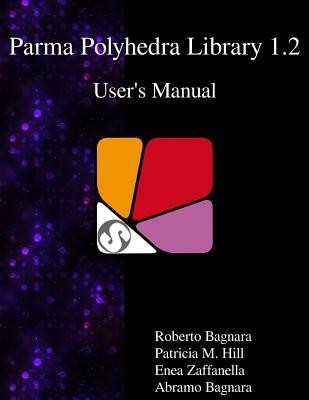
- We will send in 10–14 business days.
- Author: Patricia M Hill
- Publisher: Samurai Media Limited
- Year: 2016
- ISBN-10: 9888406833
- ISBN-13: 9789888406838
- Format: 21.6 x 28 x 2.8 cm, softcover
- Language: English
- SAVE -10% with code: EXTRA
Reviews
Description
The Parma Polyhedra Library (PPL) is a modern C++ library for the manipulation of numerical information that can be represented by points in some n-dimensional vector space. For instance, one of the key domains the PPL supports is that of rational convex polyhedra (Section Convex Polyhedra). Such domains are employed in several systems for the analysis and verification of hardware and software components, with applications spanning imperative, functional and logic programming languages, synchronous languages and synchronization protocols, real-time and hybrid systems. Even though the PPL library is not meant to target a particular problem, the design of its interface has been largely influenced by the needs of the above class of applications. That is the reason why the library implements a few operators that are more or less specific to static analysis applications, while lacking some other operators that might be useful when working, e.g., in the field of computational geometry.
The main features of the library are the following:
- it is fully dynamic: available virtual memory is the only limitation to the dimension of anything;
- it provides full support for the manipulation of convex polyhedra that are not topologically closed;
- it is written in standard C++: meant to be portable;
- it is exception-safe: never leaks resources or leaves invalid object fragments around;
- it is rather efficient: and we hope to make it even more so;
- it is thoroughly documented: perhaps not literate programming but close enough;
- it has interfaces to other programming languages: including C, Java, OCaml and a number of Prolog systems;
- it is free software: distributed under the terms of the GNU General Public License.
EXTRA 10 % discount with code: EXTRA
The promotion ends in 20d.11:08:41
The discount code is valid when purchasing from 10 €. Discounts do not stack.
- Author: Patricia M Hill
- Publisher: Samurai Media Limited
- Year: 2016
- ISBN-10: 9888406833
- ISBN-13: 9789888406838
- Format: 21.6 x 28 x 2.8 cm, softcover
- Language: English English
The Parma Polyhedra Library (PPL) is a modern C++ library for the manipulation of numerical information that can be represented by points in some n-dimensional vector space. For instance, one of the key domains the PPL supports is that of rational convex polyhedra (Section Convex Polyhedra). Such domains are employed in several systems for the analysis and verification of hardware and software components, with applications spanning imperative, functional and logic programming languages, synchronous languages and synchronization protocols, real-time and hybrid systems. Even though the PPL library is not meant to target a particular problem, the design of its interface has been largely influenced by the needs of the above class of applications. That is the reason why the library implements a few operators that are more or less specific to static analysis applications, while lacking some other operators that might be useful when working, e.g., in the field of computational geometry.
The main features of the library are the following:
- it is fully dynamic: available virtual memory is the only limitation to the dimension of anything;
- it provides full support for the manipulation of convex polyhedra that are not topologically closed;
- it is written in standard C++: meant to be portable;
- it is exception-safe: never leaks resources or leaves invalid object fragments around;
- it is rather efficient: and we hope to make it even more so;
- it is thoroughly documented: perhaps not literate programming but close enough;
- it has interfaces to other programming languages: including C, Java, OCaml and a number of Prolog systems;
- it is free software: distributed under the terms of the GNU General Public License.


Reviews